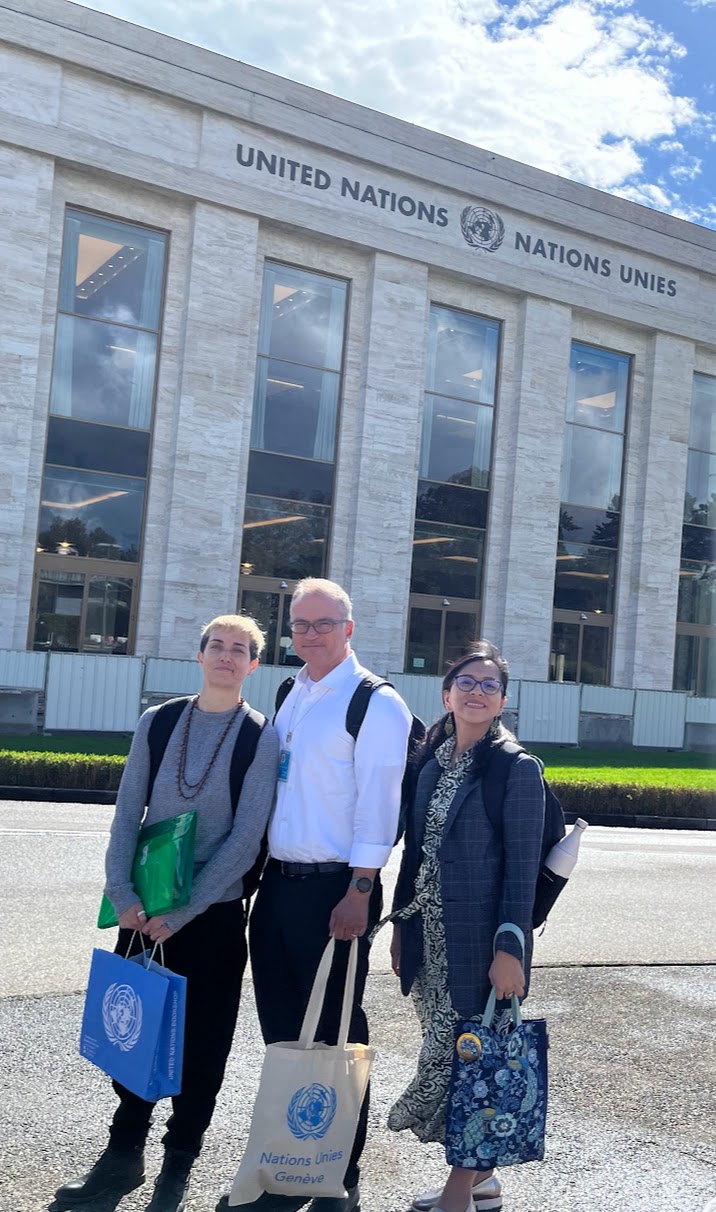UN Commission on the Status of Women 2025

Indian Law Resource Center Staff at UN Headquarters Geneva, September 2024 (Miranda Carman, Christopher T. Foley, Gianella Sanchez). / Photo courtesy of ILRC.
The United Nations has been engaged in the issue of gender equality since its foundation. The UN Charter, adopted in 1945, states in its Preamble that “We the peoples of the United Nations determined to…reaffirm faith…in the equal rights of men and women…have resolved to combine our efforts to accomplish these aims.”
The UN has used various mechanisms to advance women’s rights and gender equality, including organizing a series of World Conferences on Women. The last was held in Beijing in 1995, and the UN has since settled on a practice of conducting fiveyear reviews on the decisions and an outcome document created in Beijing. That document, the Beijing Declaration and Platform for Action was adopted by 189 countries, all of the UN Member States at the time. It represents an enormously progressive vision of women’s rights and the political work needed to advance them.
Importantly for our work, the Platform recognizes that Indigenous women often face barriers both as women and because they are Indigenous, and it encourages fundamental freedoms,” and it further affirms that this violence is a matter of international concern, that it is “a matter of concern to all States and should be addressed.”
In order to improve the international response and promote action on the policy recommendations in the Platform, the UN Commission on the Status of Women has taken on the role of implementing and monitoring body of the Platform. Every five years, the Commission dedicates its annual session to reviewing progress on women’s rights since Beijing 1995, and this year, the CSW will focus on Beijing+30.
This year’s panel will discuss the priorities of their Indigenous Nations to advance their individual and collective rights, including Indigenous peoples’ rights to their lands and resources and their right to self-government. Securing these collective Indigenous rights strengthens Indigenous governments, and strong Indigenous governments are best able to support Indigenous women’s leadership in all forms of rights-based political advocacy, especially concerning violence against women.
Our virtual panel will be free, open to all, and take place on March 10-14. Details, when available, will be posted at www.indianlaw.org.
Further information about the CSW is available at bit.ly/4aDGbrm.





